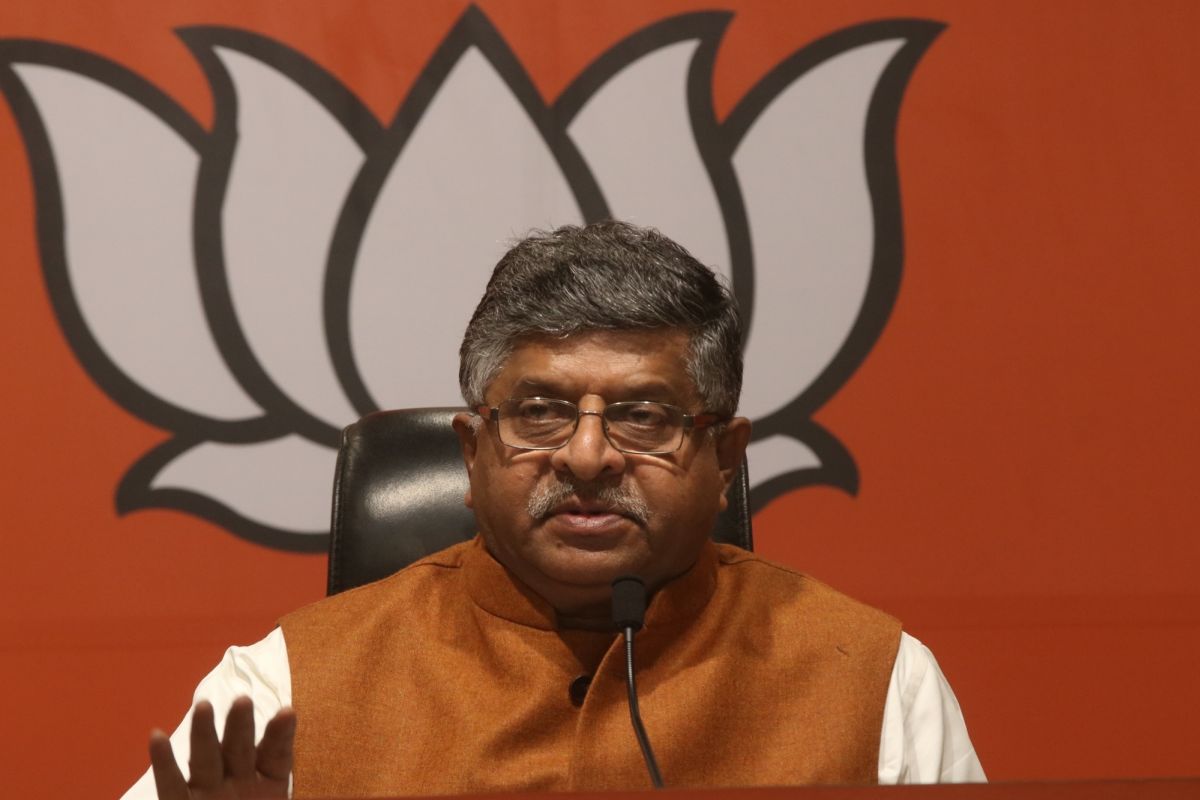Bhumi Pednekar discovers her sister is getting married
Actress Bhumi Pednekar recently took to social media to share a heartfelt post reflecting on her past few weeks.
Prasad also said that the right to privacy is very important, and it must be protected. ‘But, terrorists and corrupts cannot claim right to privacy,’ said Prasad.

Union Minister Ravi Shankar Prasad (File Photo: IANS)
Union Law Minister Ravi Shankar Prasad today said, terrorists and corrupt people have “no right to privacy” and such persons should not be allowed to abuse the system. He also expressed concern over “sinister campaign” on the social media attempting to influence the judiciary, where some people expect through this tool, the judiciary could be eventually influenced.
Speaking at the inaugural session of International Judicial Conference 2020- ‘Judiciary and the Changing World’ at the Supreme Court, the minister said populism should not infringe upon the settled principles of law.
Prasad said that governance must be left to the elected representatives and delivering judgements should be left to the judges.
Advertisement
He further said , “Sinister trend some people start campaigning on the social media on certain issue,” adding this section through this campaign is trying to influence the judiciary, especially attempting to establish, what kind of judgement should be on sensitive issues.
The Law Minister asserted, this is a serious concern, as the judiciary is independent. “They campaign in social media… on what kind of judgement they expect”, he added.
Prasad also said that the right to privacy is very important, and it must be protected. “But, terrorists and corrupts cannot claim right to privacy”, said Prasad.
He emphasized that internet is one of the greatest innovation of human kind, and attempts to abuse it cannot be allowed.
“We have given constitutional right to privacy… We should not allow anybody to kill this innovation (internet)…terrorist should not be allowed to abuse internet”, he added.
Prasad’s remark comes amid protests, erupted across the nation after the controversial Citizenship Amendment Act (CAA) came into being. Although, he refrained from talking about the issue or directly taking any names like the epi-centre of protests in Delhi- the Shaheen Bagh.
The apex court had on Monday appointed two advocates and a former bureaucrat as mediators to talk to the protesters, who are on a sit-in for over two months, and find a solution to the problem.
Following this, Senior Advocate Sanjay Hegde and lawyer Sadhana Ramachandran met the protesters on Wednesday and Thursday in a bid to break the deadlock over reopening of the blocked stretch in south Delhi.
Both lawyers along with former top bureaucrat Wajahat Habibullah told the women protesters in clear terms that a peaceful solution would have to be arrived at through talks or else the government could take steps.
Protesters, meanwhile insisted that the Shaheen Bagh protest should not be viewed in isolation, but symbolic of all the protests occurring across the country on the CAA, National Register of Citizens and National Population Register.
According to the new law, members of Hindu, Sikh, Buddhist, Jain, Parsi and Christian communities, who have come from Pakistan, Bangladesh and Afghanistan, till December 31, 2014, facing religious persecution there, will not be treated as illegal immigrants but given Indian citizenship.
Those opposing the amended law say it discriminates on the basis of religion and violates the Constitution. They also allege that the CAA, along with the proposed pan-India National Register of Citizens (NRC), is intended to target India’s Muslim community.
Advertisement